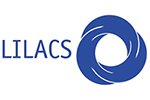ISSN Online: 2177-1235 | ISSN Print: 1983-5175
Showing of 1 until 1 from 1 result(s)
Search for : Alexander F. Pinheiro
Study of the maxillary advancement and complications in cleft and non-cleft patients underwent to orthognathic surgery
ABSTRACT
Introduction: Cleft lip and palate patients can develop undergrowth of the maxilla due to scars in the process of rehabilitation until adolescence. Objective: Evaluate and compare the horizontal advancement index of the maxilla and the complications index in the cleft and noncleft that underwent orthognathic surgery. Method: Forty six charts of pacientes underwent to surgery between 2006 and 2007 were reviewed and the indexes were obtained. The of patients horizontal advancement mean was obtained from the Ricketts cephalometric measurements of the pre-operative and three months post-operative cephalograms. Results: Cleft patients had a mean horizontal advancement of 4.1 mm and a complication index of 4.7%. The non-cleft patients had a mean horizontal advancement of 4.0 mm and a complication index of 44%. Conclusion: The mean horizontal advancement of the maxilla was similar but the noncleft patients had higher index of complications. The cephalometric method used is effective in the evaluation of both the horizontal and vertical advancement of the maxilla.
Keywords: Osteogenesis, distraction. Craniofacial abnormalities/surgery. Facial bones/surgery. Maxilla/surgery. Cleft palate.
RESUMO
Introdução: Os pacientes portadores de fissura lábio-palatina podem desenvolver hipomaxilismo devido a cicatrizes presentes no lábio e no palato durante o processo de reabilitação até a fase da adolescência. Objetivos: Avaliar e comparar o índice de avanço horizontal da maxila e das complicações em cirurgias ortognáticas, às quais foram submetidos os pacientes portadores de fissura lábio-palatina e os pacientes com diagnóstico de hipomaxilismo sem cicatrizes no lábio e no palato. Método: Foram revisados 46 prontuários consecutivos de pacientes submetidos a cirurgia entre 2006 e 2007, sendo obtidos os índices de complicações e avanço da maxila. A análise cefalométrica à Ricketts das telerradiografias foi realizada no pré-operatório e pós-operatório de três meses, nos pacientes fissurados e pacientes não-fissurados. Resultados: Os pacientes fissurados tiveram avanço horizontal médio de 4,1 mm e índice complicação de 4,7%. Os pacientes não-fissurados apresentaram avanço horizontal médio de 4,0 mm e índice de complicações de 44%. Conclusão: O avanço horizontal maxilar médio foi semelhante, mas os pacientes não-fissurados tiveram maior índice de complicações no pós-operatório. Concluiu-se, também, que este método de cefalometria é eficaz para avaliação do avanço maxilar horizontal e vertical.
Palavras-chave: Osteogênese por distração. Anormalidades craniofaciais/cirurgia. Ossos faciais/cirurgia. Maxila/cirurgia. Fissura palatina.
 All scientific articles published at www.rbcp.org.br are licensed under a Creative Commons license
All scientific articles published at www.rbcp.org.br are licensed under a Creative Commons license






